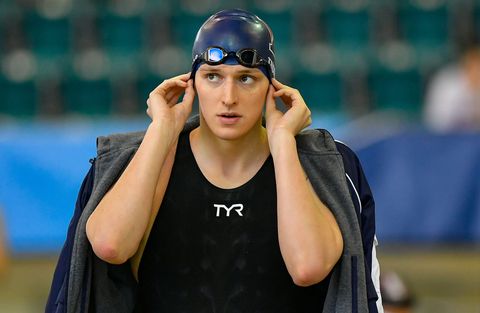The world athletics governing body voted Thursday to ban transgender women who have gone through male puberty from competing in women’s events, citing the “need to protect the female category.”
KNOW MORE: Sanctions on Russia and Belarus must continue in 2023, says IOC leader
Canadian cyclist Kristen Worley, a transgender athlete who has legally challenged the International Olympic Committee’s (IOC) gender policies, called the WA’s decision “disheartening and disappointing.”
“What is happening is that the most vulnerable are being excluded from sport more for political reasons than for scientific or research reasons,” Worley told Reuters in an interview.
“This has effects not only internationally, but also in communities around the world, including those in the United States.”
The decision follows a similar move last year by the WA, world swimming’s governing body, to exclude transgender athletes from women’s categories.
KNOW MORE: Ukraine accuses the International Olympic Committee of “promoting war”
WA President Sebastian Coe stated that the decision was made after consulting 40 member federations, coaches, athletes, transgender groups, United Nations experts and the IOC.
While some argue that going through male puberty gives transgender women physical advantages, supporters of transgender participation in sport claim that there has been insufficient research on whether transgender women have any advantages.
Worley said the idea that transgender athletes dominate women’s sports doesn’t make sense.
“I’m seeing all the newsgroups post images on Twitter without images of transgender athletes at the elite levels of world athletics because there aren’t any,” she said.
“So this is purely a political move by Seb Coe and World Athletics to address the issues of the right, political relations and obviously potential sponsors who are currently funding the WA.”
“FORCE OF HATE”
Ricki Coughlan, one of Australia’s first transgender athletes in professional athletics, said the WA decision would embolden the “forces of hate” against transgender people.
“There’s no nice way to put it,” he told Reuters.
“The forces of hate that are out there that don’t want transgender people to exist in our society…will take this as a victory and say ‘okay, let’s move on’.”
The international federation also tightened the requirements to be able to participate in the female trials for athletes with different sexual development (DSD), halving the upper threshold of testosterone levels.
Female athletes with DSD have higher levels of natural testosterone but do not produce enough of the hormone Dihydrotestosterone (DHT), necessary for the formation of the male external genitalia.
KNOW MORE: Athletics decides the future of the Russians a year and a half from Paris 2024
“Women with intersex traits will continue to be subjected to horrifying practices of medically unnecessary sex testing and surgery, gender-based violence, and discrimination,” Hudson Taylor, founder and CEO of Athlete Ally, said in a statement.
Athlete Ally advocates for lesbian, gay, bisexual, transgender and intersex (LGBTI) inclusion in sport.
A BIG STEP TOWARDS EQUITY
Several elite women in track and field welcomed the WA’s decision, including British runner and Olympian Emily Diamond, who tweeted “thank you for listening to the science.”
“A big step for fairness and protection of the women’s category, hopefully this will be the rule at all levels now, not just elite ranking events,” wrote Diamond, who won a bronze in the 400m relay. at the Rio 2016 Olympic Games.
Olympian and marathon runner Mara Yamauchi tweeted: “Great news! It’s weird to celebrate something that’s common sense.”
Save Women’s Sport Australasia, a group that campaigns against transgender athletes in women’s sport, applauded the decision.
“Well, it’s not a ban, it’s actually about protecting the women’s category for female competitors and it’s been an excellent decision,” spokeswoman Ro Edge told Reuters.
“So it’s really reassuring to hear Chairman Seb Coe come out and say they have to uphold the equality of female participation above all other considerations.”

















